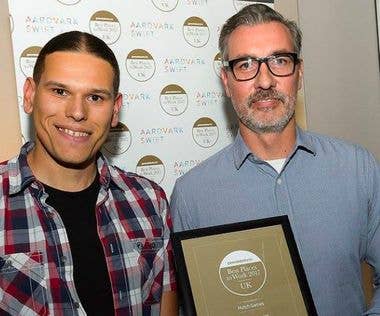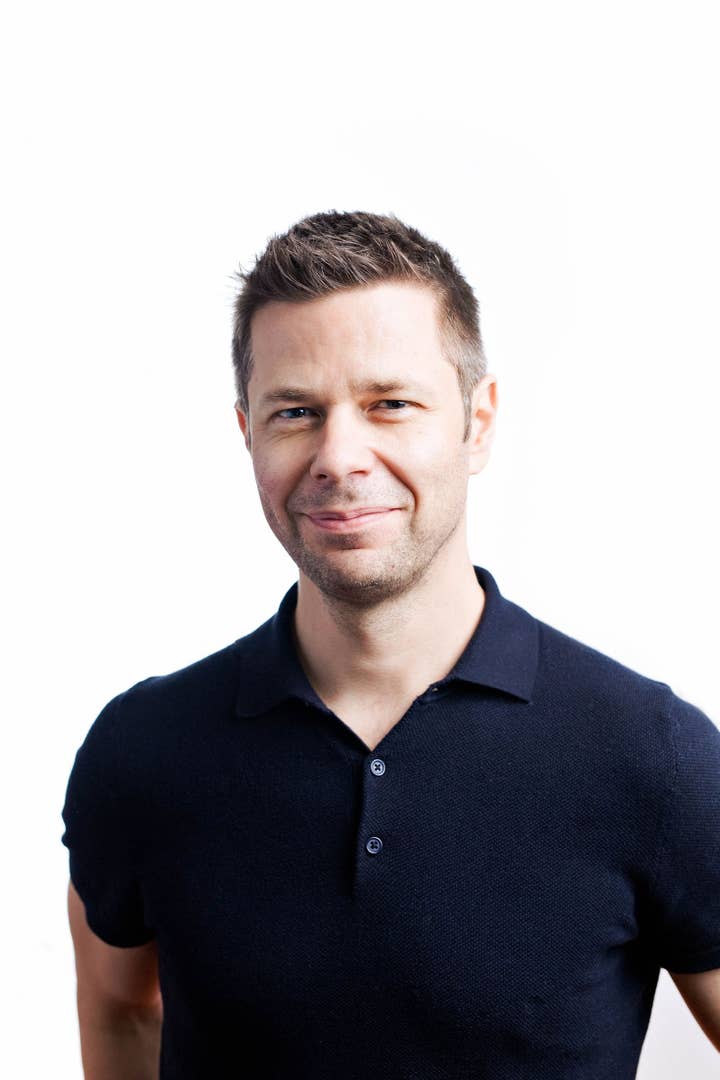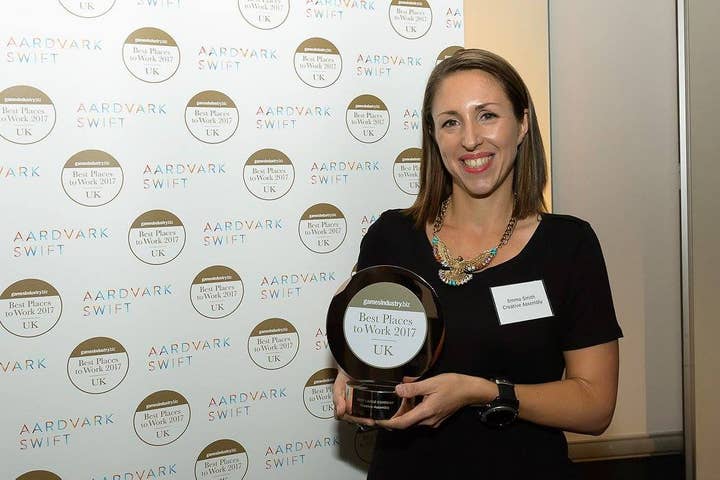How to retain your talent and keep hold of your staff
The GamesIndustry.biz Academy talks to key industry leaders about retaining talent through progression and learning
How to retain your talent and keep hold of your staff is key for any studio hoping to improve and grow a team over time. Recruiting good young programmers out of school is hard enough, but getting them through the doors is only half the battle -- you also want to keep them.
The factors that separate the 'best' places to work from the simply 'good' are pretty much unanimous across the entire spectrum of participants in our UK Best Places To Work Awards surveys: progression and training.
The companies that excelled in keeping staff motivated, learning and improving -- whether that's through conventional methods of promotion, or by enabling them to get better and keep developing via training and new challenges -- were the ones that achieved a 90% approval rating from their employees.
Here, the winners of the Best Places To Work Awards 2017 and developers speaking at GDC explain what they do to ensure that staff retention is high and keep their talent progressing.
Job titles can make a difference to talent retention
According to Iron Galaxy Studios founder Dave Lang and Iron Galaxy Orlando studio GM Tom Carbone, retaining talent and keeping hold of staff begins with company culture.
"One thing at Iron Galaxy I feel very strongly about is we don't have job titles," Lang said at GDC. "And the main reason for that is that with job titles comes entitlement in really unhealthy ways for game development."
For example, someone who holds the title of graphics engineer might push back when asked to fix bugs in the user interface simply because it's not in the job description.
"There's none of that at our studio," Lang said. "Our studio has a culture of get a shovel and start digging. Whatever we need you to do to ship this game and make it great, that's what you're working on. Having titles just gets in the way of that."
"People don't leave companies. People don't leave projects. People leave their leads"
Dave Lang
Iron Galaxy instituted that policy simply to head off some potentially detrimental mindsets in development, but Lang said it had an unintended beneficial impact on talent retention. Specifically, it let Iron Galaxy experiment with young employees without consequences. You could try out a young developer in a lead engineer-type role on one project without committing to that role in the longer term. If it doesn't work out, or if a more senior engineer is available to lead up the next project, it's easier for that young talent to adjust to a different role on the team.
"Because they don't have 'lead engineer' in their title, taking a step back like that doesn't feel like a demotion," Lang said. "It just feels like this is the work I need to do today."
Carbone noted that one problem of such a system is that career progression becomes a bit murkier. To help with that, Iron Galaxy pairs developers with senior mentors that aren't tied to their project. The regular meetings could be used as venting sessions or career trajectory discussions, but the important thing is that they give the employees some risk-free Q&A time with someone who isn't just their lead on a project. This also had an unintended benefit, as the mentors would get a better understanding of what the young developers were most interested in doing, and could advocate for them and set them up for success when future project staffing decisions were made.
Treat your staff like adults
Another key piece of advice Lang offered was to treat young employees like adults.
"Every other studio I worked at was horrible at this," Lang said. "They would treat you like you were a kid who couldn't hear bad news: 'Oh no, they can't actually know the game they worked on didn't sell any copies' or 'I don't want to tell them the project they're on just got cancelled because I don't think they're gonna handle it'.

"If you've done a good job hiring and building a studio, you've got a bunch of weirdly smart people around you and they don't stick around for bullshit. They know you're lying to them. I can go to SteamSpy and see it didn't sell."
Because of that, Iron Galaxy places an emphasis on open and honest communication, even if Lang admitted that can be something his instincts advise against from time to time. As hard as it can be to hear bad news, he's found that people really do appreciate honesty.
"Some people are motivated by money, some people are motivated by the project, but everyone believes in trust," Lang said. "Trust and goodwill is a piggy bank. Every time you're honest with something, money goes in the trust piggy bank. Every time you do something nice for someone, it goes in the piggy bank. Treat them with decency and respect in the workplace, it goes in the piggy bank.
"When you do have to give them bad news, that's a withdrawal for sure... But as long as it stays above zero, people aren't going to leave. People don't leave companies. People don't leave projects. People leave their leads."
What measures do you take to ensure staff are motivated and improving?
The winners of the GamesIndustry.biz UK Best Places To Work Awards 2017 also had a great deal to say on retaining talent by keeping staff motivated. Here, some of the most influential leaders in the British games industry offer their sound advice:
Helen Powell, D3T: "We have many in-house events to help with motivation, from regular one-to-ones through to quarterly show and tells. We also offer opportunities for training, and keep our general office atmosphere as motivational as possible. We have ongoing team sharing everyday, which helps train all our employees, but also offer extra organised training where appropriate, from lead training to online courses."
Gavin Raeburn, Playground Games: "Aside from setting probation objectives and regular reviews during a new starter's probationary period, we ensure that every team member has an annual appraisal and regular one-to-one meetings with their manager. This not only helps to ensure a high level of performance and support any training needs, but it also ensures regular recognition. Our aim is that all our employees feel valued, engaged and inspired.
"Feedback at Playground is two-way, and we run a regular Staff Satisfaction Survey where everyone is invited to provide feedback across a broad range of areas. This has resulted in many positive changes in the studio over recent years. Gathering feedback this way ensures we have a good barometer of how happy, motivated and engaged people are feeling within the studio."

Shaun Rutland, Hutch: "Our team is included in every major decision we make as a business. We engage the team first to determine enthusiasm, as we want our team to remain passionate about what we do and the games we make. We believe a motivated team that has a collaborative vision will make better games.
"In terms of structure, it's the sole responsibility of managers to motivate, encourage and improve their team. Regular meetings ensure recent successes, tension points and training can be discussed, and this is done one-on-one or as a group. With training, we give our team the autonomy to identify the areas they'd like to improve. They have access to a dedicated budget, which can be used for various training courses and conferences. This is key for employees to learn new skills outside their specific job role and better understanding the responsibilities of their fellow colleagues."
Tim Heaton, Creative Assembly: "We feel pretty lucky at CA. We have a variety of projects, some within the legendary Total War: Warhammer world, others which are unannounced and so incredibly exciting that it creates a real buzz around the studio. These all bring with them new innovations and challenges, different ideas to explore and different people to work with. Having all our studio functions in-house, from motion capture to sound design, cinematics and marketing, we can give our people a lot of opportunities to try new things. And that's fantastic.
"Our career development paths are an area we've really focused on -- we launched Expert and Leadership pathways for instance. We take an individual approach to everyone's development looking at what will help them to progress their careers, whether expert skills or leadership. This approach is working, and over 30% of our vacancies were filled by internal promotions throughout 2017. This opens opportunities for young talent to enter the industry at Creative Assembly, who continually bring fresh ideas to our games."
"Lack of opportunities is one of the main reasons we hear from candidates when asked why they're wanting to leave their current studio"
Simon Hope, Aardvark Swift
Simon Hope, Aardvark Swift: "Continued professional development is something that a lot of our candidates want to know about when we're talking through job opportunities with them. They want to know if training is offered, and there's bonus points for studios who demonstrably encourage internal progression. These guys are craving careers and stability, not just a job to pay the bills. Retention is cheaper than recruitment. The main problem we see time and time again is studios spending more money on recruitment than on retention. We want to see the people we place stay at their studio and eventually come back to us to help them grow their team.
"Lack of opportunities is one of the main reasons we hear from candidates when asked why they're wanting to leave their current studio. These are the most driven and ambitious candidates, and the people who are most likely to pose the biggest blow by leaving. It's important to remember that the relationship between staff and employers goes two ways. Holding a purpose and feeling valued are two incredibly powerful motivators. Showing interest and commitment in your employees by providing training to progress their skills and career goals will ultimately develop your staff into a more loyal, hardworking, motivated team."
How much emphasis do you put on training?
Here is what GamesIndustry.biz UK Best Places To Work Awards 2017 winners have to say about training:
Tim Heaton, Creative Assembly: "Alongside in-house training and online learning we look at a variety of workshops and opportunities. For example, our annual Coder-Con, which we open to all Sega's programmers, has been hugely successful for sharing research and innovations across the Sega family.

"It's been important to take on feedback and adapt to make training effective and engaging. We've been developing our leadership bootcamp over the last few years, and our approach to enhancing the skills of our leaders is constantly evolving. It's probably changed quite a bit from when we first started and it will continue to change."
Simon Hope, Aardvark Swift: "Not all training has to be done through external agencies. While they're certainly a valuable resource, training your staff yourself can be cost-effective and, more crucially, be tailored to your studio. Expanding a developer's job to include higher level responsibilities will not only train them for a more senior position, but will also satisfy the human desire to grow and improve. Better yet, these responsibilities could be reassigned from a more senior member of staff and alleviate boredom where the task has become routine.
"I'm a big believer of learning by doing, and this can be easily applied to training in the games industry. Studio game jams are not only a fantastic team-building day out, but they're also an effective, practical means of training leadership and technical skills. They act as a creative outlet for people who are stuck in a long-term project, and an opportunity for non-production staff to get involved... Game jams provide first-hand management experience in a controlled, safe environment."
Gavin Raeburn, Playground Games: "We recognise that in a fast-moving industry learning and development are crucial, and we understand that our employees want to learn new skills for their own personal and career development. We therefore have a very flexible approach to learning and development. This can range from knowledge-sharing at our weekly Team Meeting through to attending structured training programs.
"Staff have full visibility of our role definitions, so they know what they are aiming for"
Helen Powell, D3T
"Knowledge sharing and in-house training works best in our experience, which is also why we have a 'Buddy' system for new starters. Our appraisal and training systems support our career development framework and talent management. Having clear goals and constructive feedback works well in our experience. I think our low staff turnover level and the quality of our games is testament to that."
Shaun Rutland, Hutch: "Training has helped us maintain our key processes and philosophy -- something that has been crucial as we have grown. We've done studio training sessions to develop a better understanding of agile development, lean startup philosophies and free-to-play.
"The team was given access to Udemy accounts -- an online training tool -- but this didn't work so well. This tool gave the team the freedom to add courses they were interested in. which were then completed in their spare time. While this seemed like an interesting training option at the time, it never really developed into something that would consistently provide value."
How do you reassure staff about progression opportunities?
Helen Powell, D3T: "Staff have full visibility of our role definitions, so they know what they are aiming for and how to achieve it. Staff respond well and know how they are progressing through the feedback they get at each meeting.
Shaun Rutland, Hutch: "We provide mentorships in different areas of development so our employees can start evolving their skill-sets and broaden their perspectives. We are totally transparent in the way we run our business and present the business performance to the team on a weekly basis."
The Best Places To Work Awards 2017 was sponsored by Aardvark Swift. The winners included Creative Assembly, Criterion Games, D3T, Double Eleven, Failbetter Games, Hutch, Playground Games, Space Ape Games, Studio Gobo, Twitch, Unity, Wish Studios.

